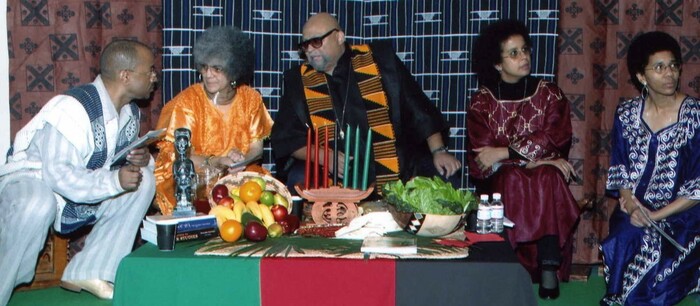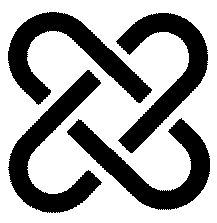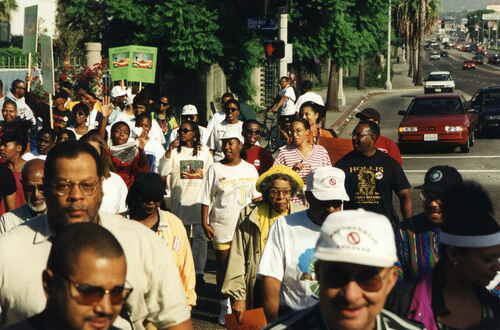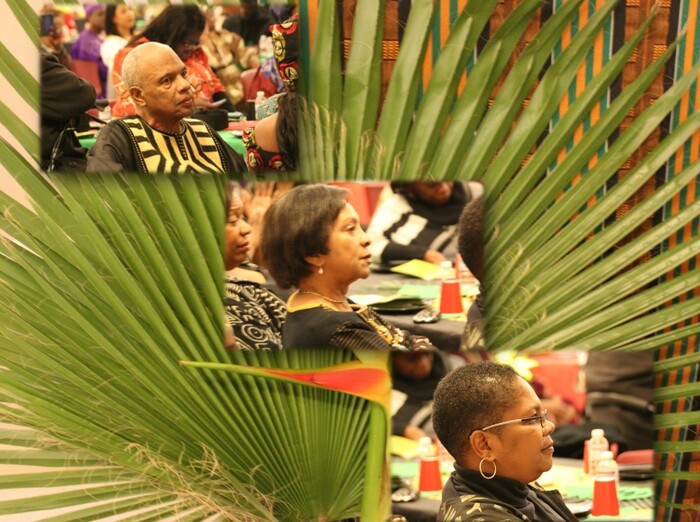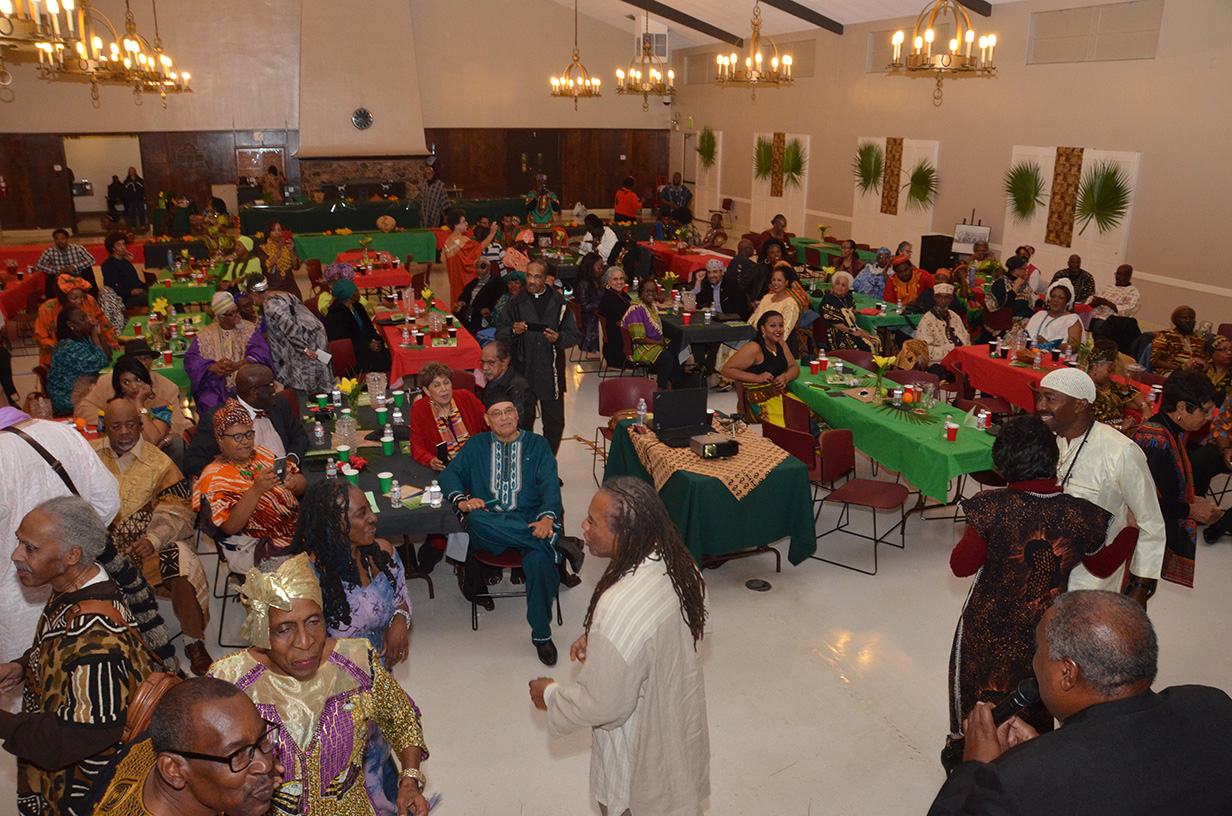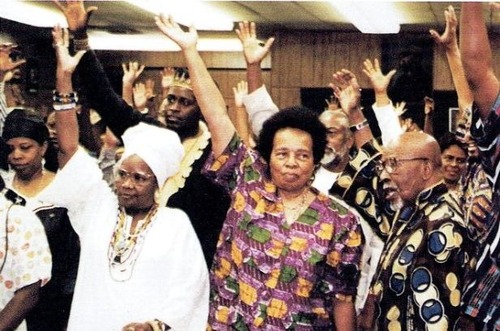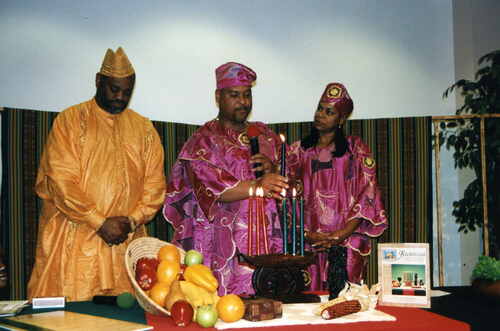Umoja (Unity) is the first and foundational principle of the Nguzo Saba for without it, all the other
principles suffer. Unity is both a principle and practice of togetherness in all things, good and of mutual
benet, It is a principled and harmonious togetherness, not simply a being together. This is why
value-rootedness is so important, even indispensable. Unity as principled and harmonious togetherness is a
cardinal virtue of both classical and general African societies. In ancient Egypt, harmony was a cardinal
virtue of Maa, i.e., righteousness, rightness. In fact, one of the ways to translate Maat is to define it
as harmony—harmony on the natural, cosmic and social level. Likewise, Cieng among the Dinka, means both morality
and harmonious living together. Thus in both ancient Egyptian and Dinka society, one cannot live a moral life without
living in harmony with other members of the community.
If unity is in essence a principle, it is no less a practice as are all the other principles. For practice is
central to African ethics and all claims to ethical living and commitment to moral principles are tested and
proved or disproved in relations with others. Relations, then, are the hinge on which morality turns, the ground
on which it rises or falls. In this regard, we can refer back to the discussion on character development through
ethical instruction. Character development is not simply to create a good person abstracted from community, but
rather a person in positive interaction, a person whose quality of relations with others is defined first of all by
a principled and harmonious togetherness, i.e., a real and practiced unity.
Another way of discussing unity is to see it as active solidarity. This essentially means a firm dependable
togetherness that is born, based and sustained in action. It is usually applied to groups, organizations,
classes, peoples and expresses itself as building and acting together in mutual benefit. The key here is
again practice. In the end practice proves everything. No matter how many books one reads on swimming,
sooner or later s/he must get into the water and swim. This may be called, on this level, the priority
of practice. Finally, unity means a oneness, a similarity and sameness that gives us an identity as a people,
an African people. And inherent in this identity as a people is the ethical and political imperative to
self-consciously unite in order to define, defend and develop our interests.
